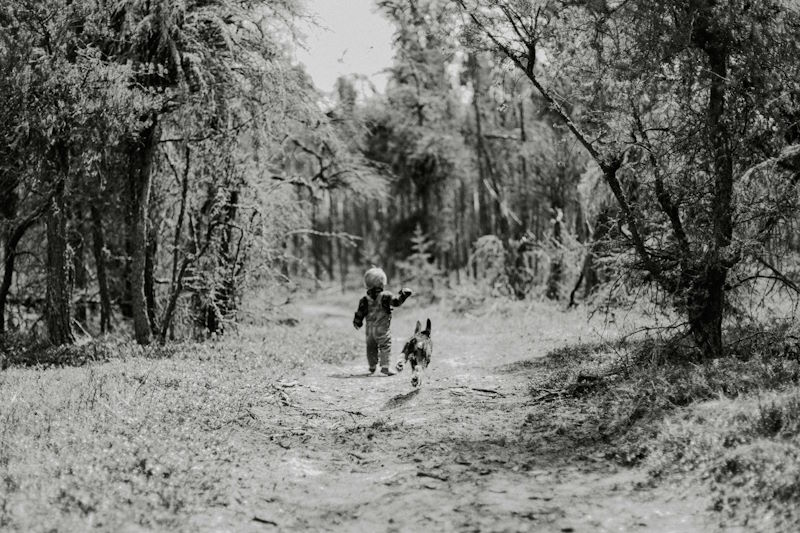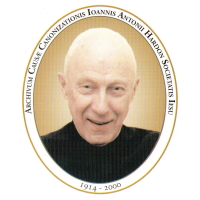On several dramatic occasions Christ had children brought to Him that He might bless them, embrace them and identify them as models for His followers to imitate. Clearly when Christ identified children as the patterns that we are somehow to pattern our lives on if we are going to be His disciples and even as He tells us, if we are going to be saved, He could not have meant that we are somehow to return to our early childish years.
He was not extolling their immaturity and least of all was He describing children who have been spoiled. He was identifying as the Scriptures have over the centuries identified, certain qualities of childlikeness that should be for us the paradigm to imitate. There are I think in biblical language especially three such qualities. They can be variously named but they may be called openness, docility, and being available to wonder.
Children we know can sometimes be embarrassingly sincere. How many parents, my own mother how many times, after the visitor has left she told me whatever possessed you to say that? Children tend to tell all. One reason I suppose why it has been customary for children to be seen and not heard because when they talk you never know what they are going to say. The least, when I as I do as on occasion, eat out with a family, children telling, everybody me especially we don’t usually have tablecloths. Or we never have cream except today.
Openness
How this kind of openness in our dealings first of all with one another is such a precious virtue to cultivate. I suppose over the years we have been so often hurt by being open that we tend to remain closed. But openness especially with God how God loves us when we are totally honest with Him, use language perhaps we’d use with no one else, tell Him what we think of so and so be sure the doors are closed. It is remarkable as we reread the psalms how frank the psalmist is in telling God what He is, what He thinks of his friends and his enemies. First then openness with others and total sincerity with God.
Docility
Another feature of childhood as identified with Jesus for us to imitate is docility. You might say it comes natural to a child to be docile because docility means to coin a word learnability. Unless God had given this instinct to a child to learn none of us would ever have been taught. Children easily, spontaneously, trustfully, listen to what is told them and believe. Children are not skeptics they are not agnostics. They are not critics. They trust they believe. What a precious virtue to cultivate in our own lives. Docility especially to the whisperings of God who is constantly teaching us, and here of course before the divine pedagogue, we are all children. One reason there must be an eternity because though we don’t quite mean this it will take eternity to learn all there is that God has to teach us. Meaning we shall never learn it all because we shall never become God. But while God has so much to tell us it all depends on our readiness to learn and here I would say and single out especially humility of mind. The worst thing in our relationship with God on this level is an I-know-it-all attitude. Because we don’t know it all. The more you learn when at the age of thirty-seven I was finally told that’s the end of your formal education. The more you learn the more, if you’re honest with God, intellectually humble you become. It means therefore to be willing to learn from God and here’s the hard one: the willingness to learn from God not of course as though God will, though of course He might, send us His own divine angelic messenger, normally not. Normally God teaches us through the circumstances of our daily lives. Especially those most painful circumstances called other people. That’s where we tend to be less than docile. Openness then to God’s teaching us especially through all whom He places into our lives. It is great, great wisdom to be so disposed as to be ready to learn from and I mean it, everyone from the youngest child to the oldest speaking to religious golden or diamond jubilarian.
Wonder
Finally, children, it’s a strange word but I like it, are wonderful, where you have a long pause between wonder and full. They admire everything. They are lost in admiration at so many things that as we know parents have quite a time as I’ve watched them in order to put this into homilies. How long it takes a parent to go through an ordinary department store with a child at her side. Curiosity, wonder, admiration at the most commonplace things in life. It is a God given instinct but sadly I’m afraid we tend to lose. This is so unfortunately true that with adults God has to work miracles in order to arouse in us once more the sense of wonder as though St. Augustine tells us the world is not full enough of wonders already. The human mind, a flower in the field, a sunset, a voice, a beautiful sound, to be lost in admiration at the God behind all the wonderful things He’s made is a grace. What Christ is telling us that we should cultivate by grace what children have by nature and thus be able to speak with God and to talk to God all day because everything around us, within us, speaks to us of the wonders of God. If only we and for most of us, I think we have to recover the ability to see God a great and beautiful Creator in the things He places into our lives. Let’s ask Him then who told us to be like children to be indeed childlike by grace in our sincerity with others and with Him, in our docility being able to learn whatever He wants to teach us. I am afraid if God graded us as students most of us would fail in reporting back to Him on all that He wants to teach us and to give us that sense of wonder which children have and we should repossess to see the great God in the least things of life. Please God like the children of His day He will also bless us because we too have become childlike. Amen.
Copyright © 1998 Inter Mirifica

